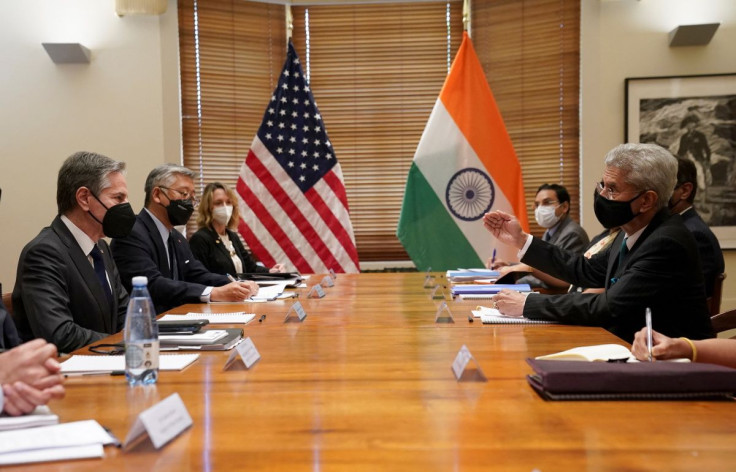China, Australia Vie For Pacific Influence With Duelling Visits

China and Australia launched competing Pacific visits on Thursday, with China's foreign minister expressing hope that ties with the Solomon Islands can be a regional model, while his counterpart said Canberra will be a partner that doesn't come with strings attached.
Australia's Foreign Minister Penny Wong told the Pacific Islands Forum (PIF) secretariat in Fiji that Canberra will listen to Pacific islands which had "led the global debate" on climate change.
She spoke as China's foreign minister arrived in the region seeking a sweeping 10-nation deal on security and trade that has further unnerved the United States and its Pacific allies.
In pointed remarks, Wong said the 50-year-old regional forum, of which Australia was a member, was the "heart of Pacific regionalism".
She said Australia had previously not respected Pacific nations' struggle with climate change and rising sea levels, and the new Labor government would do more, including financing climate infrastructure and offering migration and work pathways to Australia for Pacific citizens.
"The triple challenges of climate, COVID and strategic contest will challenge us in new ways. We understand that the security of any one Pacific family member rests on security for all," she said.
PIF secretary general Henry Puna welcomed the new Australian government's commitments, especially on climate change, saying it had "shaken the foundation" of Canberra's foreign policy direction for the Pacific.
"Australia will be a partner that won't come with strings attached, nor imposing unsustainable financial burdens," Wong added, a thinly veiled reference to China, which has been criticised over its aggressive lending to poorer countries.
CHINA'S 'MODEL' SOLOMONS DEAL
Meanwhile, Chinese Foreign Minister Wang Yi met with Solomon Islands Acting Governor General Patteson Oti in Honiara at the start of an eight-nation tour. Wang will host a meeting of Pacific foreign ministers in Fiji next week to seek agreement on a five-year Pacific islands action plan.
"We hope the relationship between China and Solomon Islands will later become a high ground of mutually beneficial cooperation and a model of mutual trust between China and the island countries," Wang said, according to China's foreign ministry.
A draft communique circulated by China to Pacific islands ahead of the foreign ministers meeting in Fiji has prompted opposition from at least one of the invited nations, which says it showed China's intent to control the region and "threatens regional stability".
The Solomon Islands government said in a statement Wang would sign a number of cooperation agreements between the two countries in a two-day visit. The Chinese delegation of 44 includes vice ministers in foreign affairs, commerce, environment, and information officials.
The Solomon Islands recently signed a security pact with China despite objections from Australia, the United States, Japan and New Zealand, which fear it could give China a military foothold in the region.
China rejects this, saying the pact is focused on domestic policing and criticism by Western countries was interference in the Solomon Island's sovereign decision-making.
"China will, as always, firmly support the Solomon Islands in safeguarding national sovereignty, security and territorial integrity and safeguarding domestic unity," Wang said during a meeting with his Solomon Islands counterpart.
The Chinese delegation travels to Kiribati on Friday, where Wang will stay only four hours for meetings and to sign agreements.
Fiji's Prime Minister Frank Bainimarama said he would meet Wong on Friday, and Wang on Monday.
"I've been asked about Fiji's agenda. At all tables, what matters most is our people and our planet, as well as respect for international law," he wrote on Twitter on Thursday.
© Copyright Thomson Reuters 2024. All rights reserved.







